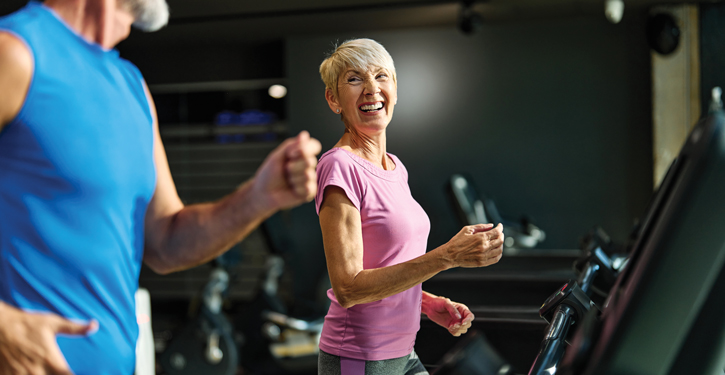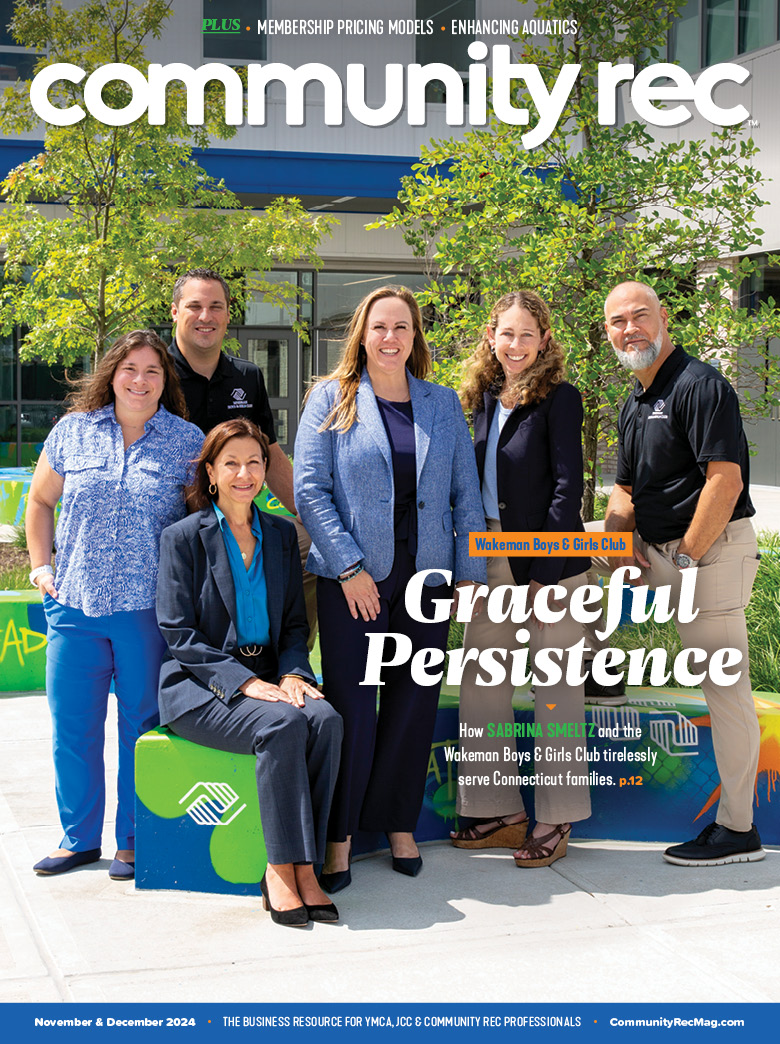Three rec center leaders share how they’re serving the special populations groups in their community.
Having a community is important for any individual, especially with the growing recognition of mental and social health’s role in holistic well-being. For people with chronic diseases, having a group with shared experiences and specialized programming can be a valuable way to remain happy and healthy. As such, community rec centers are in a unique position to offer these services as a way to promote healthy living and friendly relationships.
The YMCA of Greater Louisville offers programming for Parkinson’s disease and LIVESTRONG for cancer survivors. According to Barb Millhollan, the community development and LIVESTRONG director, the goal of these programs is to help participants reach their health goals — whether that be running a marathon or walking to their mailbox.
“These groups are made of people just trying to recover,” added Millhollan. “We say it’s the club no one wants to join, but once you’re in, nobody leaves because it’s such a great program. Everybody has a different idea of what fitness means to them. It’s about improving quality of life.”
Along with physical health, Millhollan emphasized the social aspect when participants create valuable relationships together. Their shared experience battling these diseases creates a strong foundation, but Millhollan has seen deeper friendships form thanks to the Y’s programming. Participants work out, get meals and laugh together which makes these connections invaluable during their turbulent health journey.
“For our LIVESTRONG program, the common denominator is cancer,” explained Millhollan. “But as they progress along, they want to put cancer in the rearview mirror. My job is to help them move forward and build strength and motivation within them. Start small, then begin to build. What you can create is a warm, welcoming community for all.”
Along with promoting valuable relationships, mental health also plays a vital part in this type of programming. At the Barry & Florence Friedberg JCC (Friedberg JCC), Gloria Lebeaux, a licensed clinical social worker and the director of social work, and Jackie Ruiz, the senior program officer of wellness and member services, work together to ensure their programming around Parkinson’s and dementia help attendees in a holistic way.
“From a community standpoint, our programs give people a sense of belonging where they’re comfortable,” said Ruiz. “They’re able to exercise and feel good. We’re always trying different things like boxing, Tai Chi and Aqua Spin. And having a great relationship between our fitness and social services departments ensure we can properly support attendees both mentally and physically.”
To help members work toward better mental awareness of these conditions, the JCC provides supplementary resources like educational information and individual counseling. The variety of activities and opportunities the J offers include presentations from local professionals like an occupational therapist, creative writing sessions, weekly Parkinson’s discussions and more.
“We make sure people know they aren’t alone, they’re well-informed and they can make decisions around these diseases as it progresses,” explained Lebeaux. “We have a whole variety of things we do to address the social, psychological, cognitive and physical symptoms in these areas.”
Starting these programs can seem daunting because of the expertise needed to successfully run them. Participants need different, more focalized support than other members do. When the Friedberg JCC decided to pursue Parkinson’s programming, Lebeaux knew she’d need to do plenty of research before becoming a facilitator, so she reached out to local resources.
One reason why it began was a lack in accessibility of other special programming throughout the city, and the JCC was in a prime position to fill it. “The way this program started was about seven years ago, and I was getting calls from people who had Parkinson’s,” explained Lebeaux. “I’ve hit a lot of populations, but that wasn’t one I’ve ever worked with, and I didn’t know a whole lot. As it progresses, people can’t drive which means they couldn’t access other resources around us. It’s just too far, and that’s why we started it.”
The impact of collaboration can also be seen at the JCCMetroWest. With its variety of programming including Cooper Tracks cardiovascular program from Welld Health and Cooper Wellness Strategies, a weekly Parkinson’s strength class, adaptive swim lessons and team, memory impairment programming, and services for those with special needs, teamwork is important to ensure top-quality programming.
Ellen Robertson, the wellness director of the JCC MetroWest, said trust between departments is vital to the facilitation of these programs as one challenge is spreading the word about the JCC’s many offerings for special populations. A way to remedy this has been through their partnership with the local healthcare system, public health agencies and health insurance companies.
Sharon Gordon, the chief program officer at JCC MetroWest, also shared about their collaboration with a local home health aid agency that provides certified aids for their programs. Community members will come and volunteer to help keep these offerings safe for participants. These programs take a lot of effort to grow and improve. Having the right team onboard is a key to success both Gordon and Robertson emphasized.
“My advice is to focus on building your internal and external relationships,” said Robertson. “Invest the time to let your programs grow. They’re so important to the community because it’s an atmosphere that nurtures holistic well-being and space where our community can thrive. The community and connectedness at the JCC creates such a unique environment.”
But the unique challenges of working with these populations can’t be ignored. Millhollan explained how she inspires LIVESTRONG members when they’re struggling to have the motivation to exercise. Most times, their weariness is solved when they get to the Y and see Millhollan and their friends, but if not, she still makes sure they participate and have something to do during the day. “You have to keep them motivated to keep coming, because sometimes they’re just tired,” said Millhollan. “Even if they don’t exercise, I’ll make sure they stay around with a job like putting name tags on people. Usually, the energy from everybody will lift them up. Once they make it to my front door, they’re electrified and feed off each other’s energy.”
Above all, Millhollan emphasized the importance of being patient and kind when working with these populations. Many participants may not know what to expect stepping inside a gym. Take the time to understand the people you’re helping and meet them where they are.
“A lot of time, people are afraid when they come to you for this programming,” explained Millhollan. “My job is to take that barrier out. Start small and build from there. What you can create is a warm, welcoming environment for all.”










